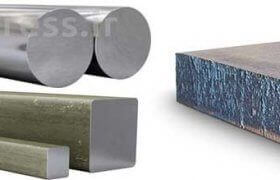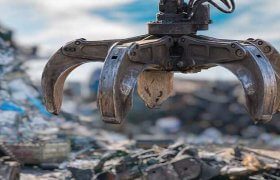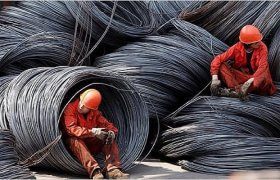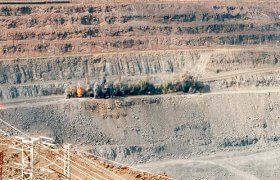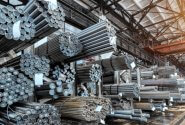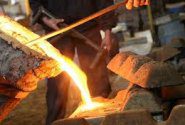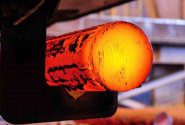اخبار ویژه
سهمیههای جدید اتحادیه اروپا، فولادسازان ترکیه را به بازارهای نزدیکتر سوق میدهد
صادرات فولاد ایران در ۱۰ ماه از ۶.۵ میلیارد دلار عبور کرد
بازنگری دولت ترامپ در تعرفههای فولاد و آلومینیوم؛ احتمال معافیت برخی محصولات
قیمتهای صادراتی فولاد ایران در هفته منتهی به ۲۴ بهمن ۱۴۰۴
بازار آهن اسیر جو روانی یا واقعیت اقتصادی
Steel in the World | صفحه ۱۴ از ۵۴ | آرتان پرس
رشد ۲۷.۶ درصدی صادرات فولاد ترکیه
صادرات فولاد ترکیه در سال ۲۰۲۴ با افزایش چشمگیر ۲۷.۶ درصدی به ۱۳.۴ میلیون تن رسید. این در حالی است که واردات فولاد نیز با افزایش اندک ۱.۷ درصدی به ۱۷.۴ میلیون تن بالغ شد.
Increasing crude steel production in GCC countries
Crude steel production in the Persian Gulf countries has increased in the first 5 months. Qatar is engaged in construction and steel consumption due to hosting the World Cup and treats other countries in this field differently. Entering the prefabricated housing industry in the UAE and Saudi Arabia has led to acceptable growth in crude steel production in the GCC countries.
CIS STEEL BILLET: Market quiet, price rise expected; Russia mulls export tax
The Commonwealth of Independent States (CIS) export billet market turned quiet at the end of the week to June 25 following news of the Russian government’s plan to impose temporary export duties on ferrous and non-ferrous metals sold outside the Eurasian Economic Union (EAEU) from August 1, Fastmarkets heard.
ASIA HRC: Prices see slight rebound amid returning demand
Demand for SAE1006 hot-rolled coil in the Vietnam import market improved slightly during the week to Friday June 25 amid reviving interest from buyers, sellers in India told Fastmarkets.
DAILY STEEL SCRAP: Turkish producers end week with a single deep-sea deal
Turkish steel mills ended the working week with a single deep-sea cargo amid limited rebar demand, especially in the export markets, sources told Fastmarkets on Friday June 25.
Growth of low-grade iron ore prices on margins and out of public eye
In recent months, Metal Bulletin assessments show that Chinese steelmakers are moving to low-grade iron ore. This is clearly seen in the feed change of steel mills. The Chinese government has obscured the future of global steel trading by imposing heavy tax penalties on iron ore importers and factories using high-grade iron ore.

Coking coal imports in China dip further in May
China imported 3.41 million tonnes of coking coal in May 2021, down 30% from the corresponding period last year and down 2% month on month, the latest data from China Customs showed.
Global steel production in May 2021
Global crude steel production for 64 countries is reported at 175 million tonnes in May 2021. It is noteworthy that this amount of production has increased by about 16.5% compared to May 2020. Iran is also mentioned in this report as the tenth steel producer. Iran is likely to continue this trend with growth, as it did in 2020.
CHINA HRC: Domestic prices extend losses following futures slump
Hot-rolled coil prices across China’s domestic market continued to move lower on Tuesday June 22, while futures prices extended their decline, sources said.
IRON ORE DAILY: Prices rebound amid potential easing of Tangshan blast furnace restrictions
Iron ore prices rose on Tuesday June 22, and there was market chatter about the potential resumption of blast furnace operations and the easing of emissions restrictions in Tangshan, sources told Fastmarkets.
Chinese government involvement in iron ore and coal market
In recent days, the Chinese government has decided to orderly control the price of iron ore and coal in its domestic market. The Chinese policymaker argues that prices have risen irrationally, but the reality seems to be something beyond that. Despite the reduction in prices, this has reduced the profit margins of steelmakers and led to a relative recession in the market.


